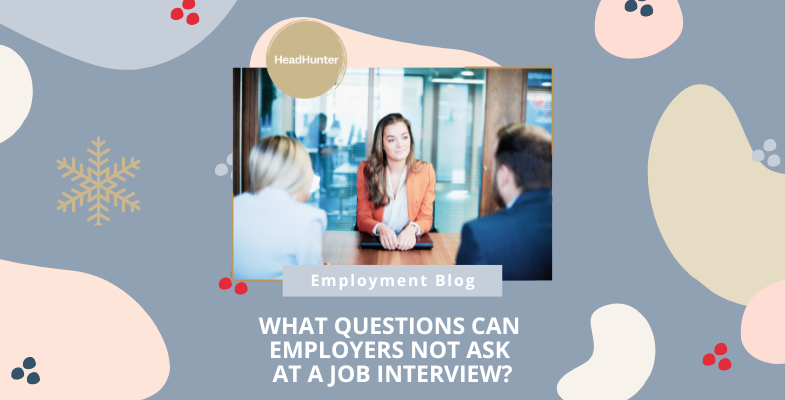What questions can employers not ask at a job interview?
Employers use job interviews as a way to work out how suitable you are for a role, and the interview is an ideal opportunity to discuss your skills and expertise.
But there are limits to what questions employers can and can not ask at a job interview. Here’s what you need to know.
What is acceptable for employers to ask?
A job interview is designed to help employers work out whether or not you’re the most suitable person for a role. This means that the questions you’re asked should relate directly or indirectly to your ability to perform the role.
While questions about certain personality traits that may be relevant to the role are understandable, for example, ‘How do you deal with stressful situations at work?’, questions about irrelevant personal attributes are not, for example, ‘Do you suffer from any mental health issues?’
Questions that employers can’t legally ask
It is unlawful under the Fair Work Act 2009 for an employer to use information obtained in an interview process to then discriminate against you on the basis of race, colour, sex, sexual orientation, age, physical or mental disability, marital status, family or carer’s responsibilities, pregnancy, religion, political opinion, national extraction or social origin.
The right not to be discriminated against doesn’t just apply to existing employees. It also extends to prospective employees such as job candidates and ensures that they are not denied job opportunities for discriminatory reasons.
What questions can employers not ask at a job interview? Most questions about irrelevant personal attributes should be off limits. For example, the following questions will usually be unreasonable in most interviews:
- What religion are you?
- Do you have a physical or mental disability?
- Are you pregnant or planning to start a family?
- Are you in a same-sex relationship?
- How old are you?
- What’s your ethnic background?
- Who do you vote for?
In most cases, the answer to these questions will not shed any light whatsoever on your ability to actually do the job. Therefore, the fact that these questions are even being asked by an employer can suggest an intent or desire to discriminate and should therefore be avoided.”
Are there exceptions?
A broad exception to this general rule exists if the information is being requested because it’s reasonably required for a non-discriminatory purpose.
For example, if a person was applying for a role at a warehouse that required heavy lifting, it would be lawful and reasonable for the employer to ask about any physical disability that might impact your ability to perform that heavy lifting. In this scenario, the question about the personal attribute goes directly to your ability to perform the role and is therefore reasonable.
What you can do if you’re asked a question that you think may lead to discrimination
Even when a question seems off limits to you, when you’re eager for the role it can feel difficult to refuse to give an answer.
Responding in a way that redirects the conversation may help. If an interviewer steps out of line and asks a question that could potentially lead to discrimination, politely respond that you do not believe that the answer is relevant to your ability to perform the role. Depending on how the question was asked, this might be as simple as saying, ‘I’m interested to know how that relates to the role. Can you tell me a little more?’
Ideally, this response will cause the interviewer to realise their misstep and withdraw the question. You can also use it as an opportunity to pivot the conversation towards the strengths that you do have that are actually relevant to the role.
By sensitively responding to what you think is a discriminatory question, it may also encourage the interviewer to explain why they think the question is relevant to the role. It may be that the question is required for a non-discriminatory reason.
Ultimately, what an employer asks you in an interview should relate to the job and how suitable you are for it. It can be uncomfortable to refuse or avoid a question, but knowing what’s off limits and having a simple response at the ready can help you to feel more confident and in control.
For more information on workplace discrimination, visit Fair Work.
How to use HeadHunter
If you’d like to post a job on HeadHunter, our packages are listed HERE.
If you are a candidate and would like to learn about new job opportunities, upload your CV HERE.
Keep up to date with the latest in employment and recruitment in the hair and beauty industries
at the HeadHunter blog.
To keep in touch with the latest trends in employment and recruitment, join our newsletter list!
If you are a candidate looking for the latest job vacancies, visit HERE.
If you are a business owner looking for staff, visit HERE.
Check out our socials – you can send us a message on
Facebook HERE or Instagram HERE or LinkedIn HERE.

